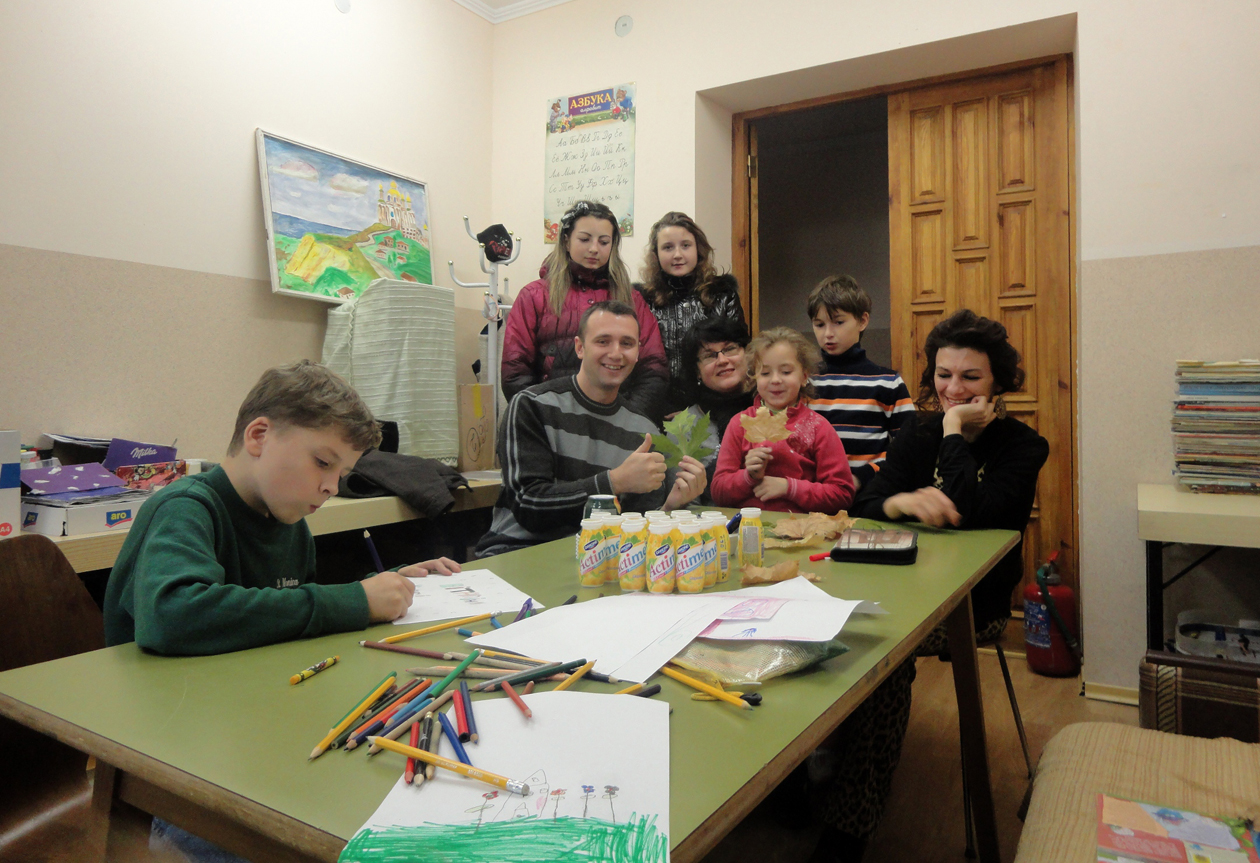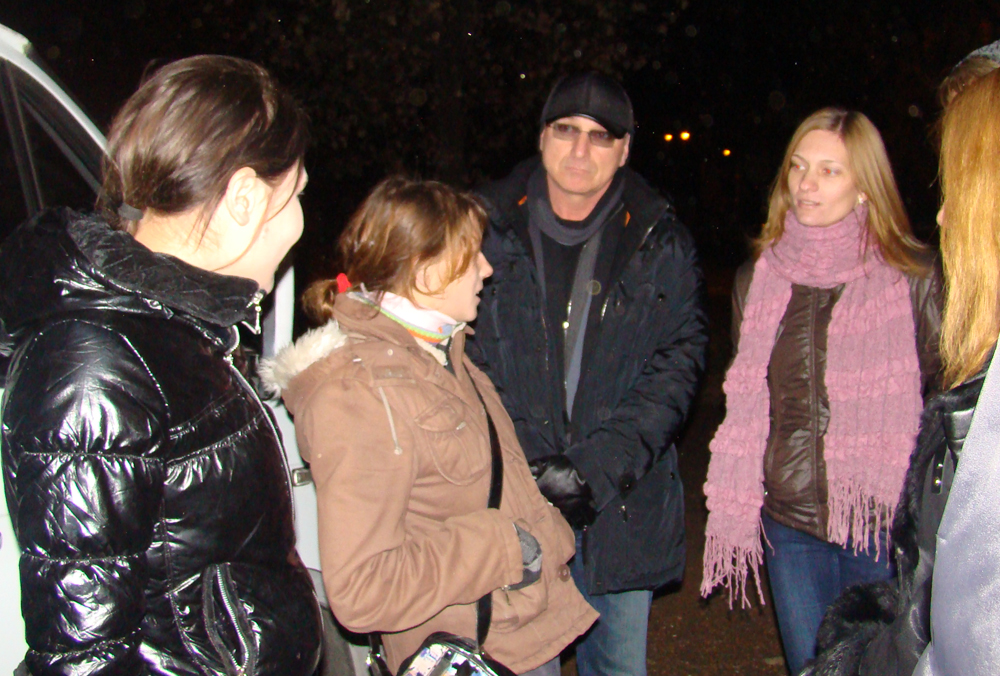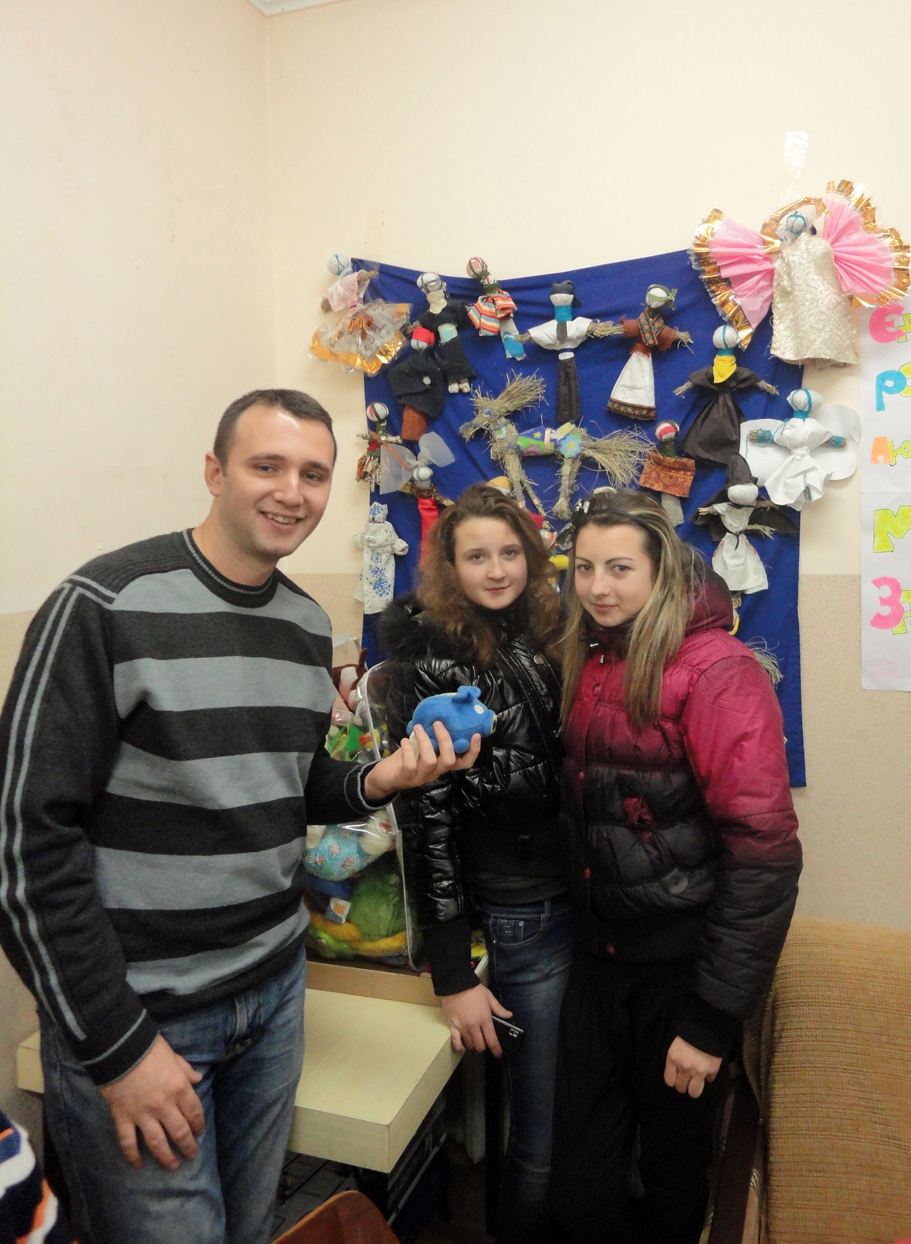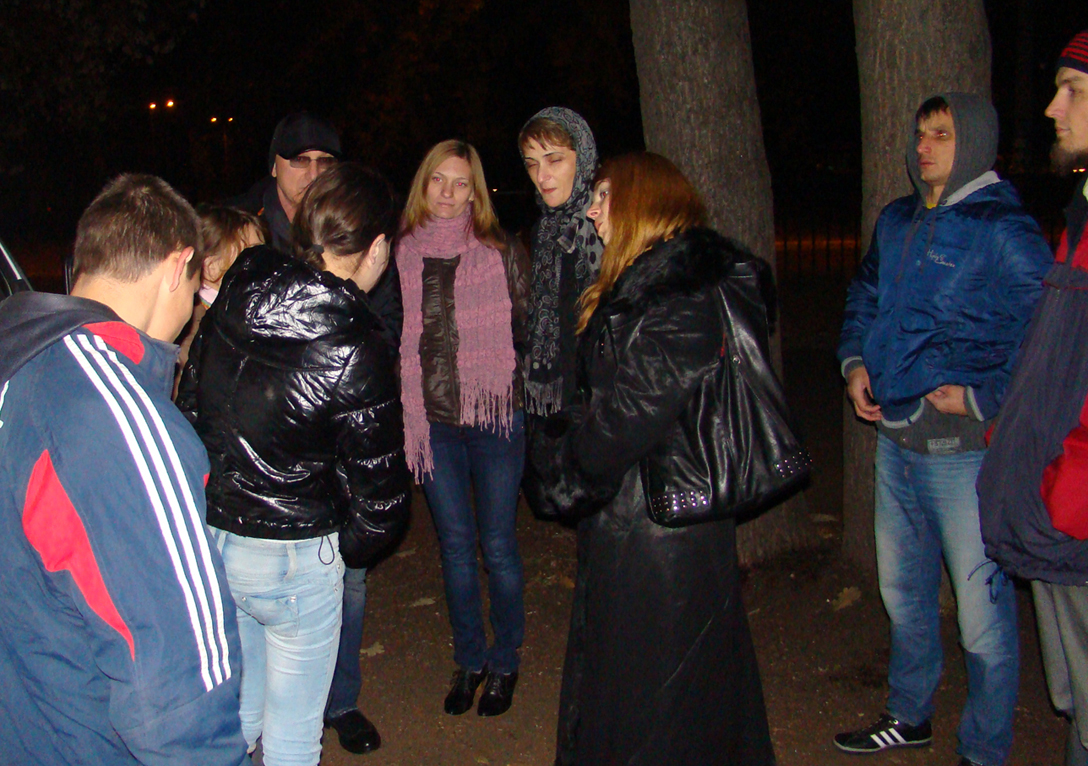
04.12.11
From 9-13 November, Kyiv Caritas hosted employees from Caritas Georgia and Azerbaijan. They came to familiarize themselves with Caritas Ukraine’s social work experiences, to share their own experiences, and to make new contacts. For three days, staff from Caritas Tbilisi’s Work with Crisis Children and Youth projects participated in outreach work and at Caritas Kyiv’s Social Centre, and familiarized themselves with what two nation-wide organizations, The Right to Health and Aspirin, do,” said Fr. Roman Syrotych, Director of Caritas Kyiv.
During the first day of their visit they met with the leaders of the Mobile Work with Youth project run by Caritas Kyiv. The two groups talked about the directions their work is taking, their assignments, and results as well as the social situations in their respective cities and the unique ways that they cooperate with government bodies.
During the course of the day, the visitors were able to participate in activities at the Social Centre, and talk to Caritas clients.
The second day, Georgian guests visited the Centre for Assisting Girls and Women in Difficult Life Circumstances called Right for Health, and that evening went o ut with mobile units from KMTSSSDM, Caritas Kyiv, Caritas SPES, and Right for Health. This may have been the most interesting part of their visit. The Georgian visitors talked with a group of homeless young people, and observed how medical treatment and counselling was provided as well as how food was distributed.
ut with mobile units from KMTSSSDM, Caritas Kyiv, Caritas SPES, and Right for Health. This may have been the most interesting part of their visit. The Georgian visitors talked with a group of homeless young people, and observed how medical treatment and counselling was provided as well as how food was distributed.
On the third day the guests visited a homeless shelter for children as well as a rehabilitation and professional-educational training centre run by the charitable Aspirin foundation, a partner organization of Caritas Austria. Their visit ended with a full day excursion of Kyiv’s historic sites.
On 11 November Mr. Arif Karimov, a guest from Caritas Azerbaijan visited. He spoke with staff and volunteers from the local Caritas, as well as with child clients of the social Centre for children in Crisis.
Mr. Arif’s visit coincided with an eco-art activity, so he visited the exhibit of children’s’ works (drawings and collages, and string dolls). She spent much time with the children and volunteers discussing their interests.
 “Thank you for your hospitality. I find it very valuable to interact with people from different cultures. We are one big family, with one heart, we have a similar vision for developing professional work and society; we are guided by the same values. The only difference is that we speak different languages,” said the guest at the end of his visit to Caritas Ukraine.
“Thank you for your hospitality. I find it very valuable to interact with people from different cultures. We are one big family, with one heart, we have a similar vision for developing professional work and society; we are guided by the same values. The only difference is that we speak different languages,” said the guest at the end of his visit to Caritas Ukraine.
In addition to leaving positive impressions, the meeting with their counterparts from Georgia and Azerbaijan provided valuable information on how to further develop social services in Ukraine. Georgia is currently implementing a Western model of social work which calls for maximum de-institutionalization. As an example, the state relegates caring for orphans to the community. They provide oversight, financial assistance and counselling to adoptive families and private orphanages. As in other sectors, Georgians have taken advantage of the possibilities that arose after the collapse of the authoritarian regime 8 years ago.
Today nearly all large orphanages have disappeared. In their place a network of small private family style orphanages and an aggressive adoption program have been established. Georgia has downsized state run social services; communities now purchase these services from community organizations that compete to provide necessary services for the lowest price. Successful anti-corruption policies also ensure that bidding to provide social services is won by the organization that can provide the best services at the least cost.
“Regarding our Azerbaijani visitors, despite the high demand for social servic es, their opportunities are limited. The socio-economic situation in Azerbaijan is similar to ours: rampant corruption, a big gap between the rich and poor, and wide spread emigration as a solution for hopeless social unfairness. They have significant income from the sale of oil and completing expensive infrastructure projects.
es, their opportunities are limited. The socio-economic situation in Azerbaijan is similar to ours: rampant corruption, a big gap between the rich and poor, and wide spread emigration as a solution for hopeless social unfairness. They have significant income from the sale of oil and completing expensive infrastructure projects.
However, tourists see miserable poverty next to flaunted wealth. In some respects we are in a better position, so far. The government of Azerbaijan, in striving to protect themselves from public disapproval, is restraining the development of all community organizations not only the political ones. This is largely an Islamic country, though Caritas does not do missionary work but helps those in need without regard to their religion, they are limited by old Christian enclaves,” emphasized V’yacheslav Fedchenko, a social worker from Caritas Kyiv.
Tags:

